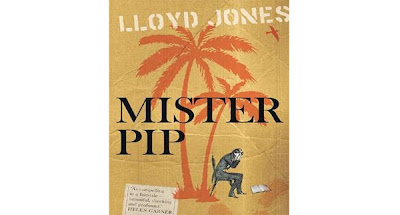Success has everything to do with simple behaviors such as reading for an hour a day, turning television time into learning time, and attending classes and training programs. Jack Canfield’s Success Principle 36: learning more leads to earning more is what’s on my mind this week. People who have more information have a tremendous advantage over people who don’t. Cutting out just 1 hour of television or idle conversation a day creates an extra 365 hours per year (that’s over nine additional 40-hour workweeks—2 months of additional time!) to accomplish whatever is most important to you. What can you do with that extra hour? We can learn from motivation leaders.
Forget saying: I don’t have the time to do what you do or that I wish have all the time in the world to do something different. I wish I have the time to write a book. I wish I have the time to learn more about computing? I wish I have all the time to make my family happy. We complain about having no time to do everything we want to do.
We don’t complain about all the time we take to tell stories, complain, and talk about the things that don’t get us anywhere. People don’t complain about playing computer games or net serving all day long. People don’t complain about spending many hours in the betting shops. People don’t complain about drinking beer during work hours or staying on the phone whole day doing personal calls. People appear busy without doing anything productive.
This week in this column I am sharing what I learnt from reading Jack Canfield’s The Success Principles. There are 12 sub-principles for learning and gaining more with the extra time:
1. Decrease your television time or storytelling time. Use that time to read for an hour a day. Read inspirational autobiographies of successful people.
2. Leaders are readers. Read the books on successful people and successful living. Read a book or chapter of a book every day.
3. Learn to read faster to read more. If you read more slowly than you’d like, consider taking a course to increase not only your reading but also how fast you absorb the information. You can check for useful sources on reading by using the internet search facilities.
4. Develop a weekly system for getting smart. Reading self-help and personal development books will help you achieve mastery in the areas of life that are central to your happiness and fulfillment. They contain some of the best time-tested wisdom, information, methodologies, systems, techniques, and secrets of success that have ever been recorded. If you make the commitment to read one book a week, review what you have read, and apply at least one thing you learn from each book, you will be miles ahead of everyone else in creating an extraordinary life.
5. Study the lives of great people. Read some of the best books out there on biographies and autobiographies on great people. By reading them you will become great yourself. A thought: If you’re to watch television, make a point of watching any documentaries on inspirational people.
6. Attend success rallies, conferences and retreats. Thousands of people attend rallies, conferences, retreats, and workshops to learn from great speakers, trainers, and motivators of our day. You, too, can access these powerful learning experiences by attending rallies, conferences, and retreats—additionally benefiting from the excitement and inspiration of your fellow attendees and the networking that goes on at these events. Keep an eye out for ads in your local paper.
7. Be teachable. To learn and grow in life, you need to be teachable, too. You need to let go of already knowing it all and needing to be right and look good, and open yourself to being a learner. Listen to those who have earned the right to speak, who have already done what you want to do.
8. Be prepared when opportunity knocks. Learn as much as you can from people around you or those who have gone before you. Seek out mentors and learn from them what you can about what you want to be. Absorb everything you could. Be prepared to take advantage of opportunities when they present themselves.
9. What do you need to do to get ready? If you want a promotion at work, why not ask your boss what it takes to become promotable? Perhaps you need to go back to school and get your MBA. Or maybe you need 1 year accounting experience. Or perhaps you need to learn the latest software programs. Do you need to learn a new foreign language? Could you develop advance skills, more resources, or new contacts? Do you need to get your body into better physical shape? Should you expand your business skills, sales skills, or negotiating skills. Are you learning new skills on the computer—such as using PowerPoint, PageMaker, Photoshop, or Excel? Whatever you need to do to get ready, start now by making a list of the top 10 things you could be doing to be ready when opportunity finds you.
10. Attend human-potential trainings. Imagine that you suddenly discovered you were driving with the emergency brake on. Would you push harder on the gas? No! You would simple release the brake and instantly go faster—without any additional expenditure of energy. Most of us are going through life with the emergency brake on. It’s time to release the limiting beliefs, emotional blocks, and self-destructive behaviours that are holding you back.
11. Therapy and Counseling. Some of us simply need more in-depth work to remove the emotional blocks and childhood programming that are holding us back. For some therapy and counseling are the answers.
Finally you must commit to lifelong learning. The amount of knowledge and information available in the world is growing at a mind-numbing pace. All human knowledge has doubled in the last 10 years. Don’t expect this trend to slow down in the next hour.
Email: steven.winduo.manui@gmail.com
Blog: www.manui-manui.blogspot.com







